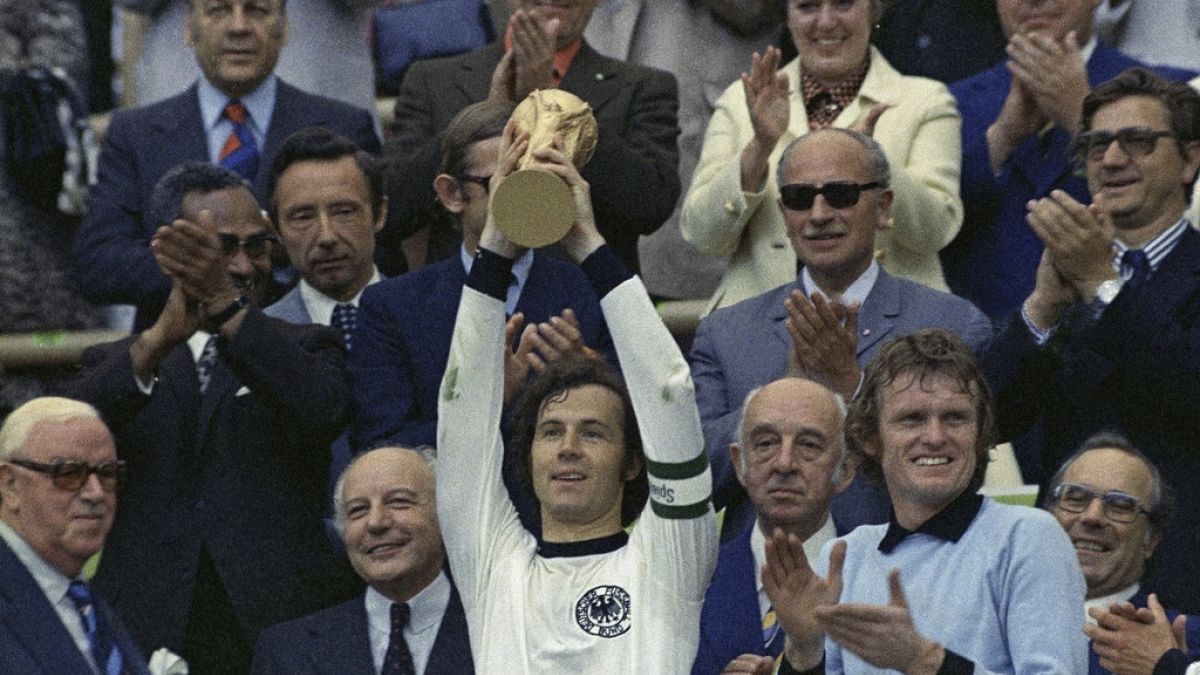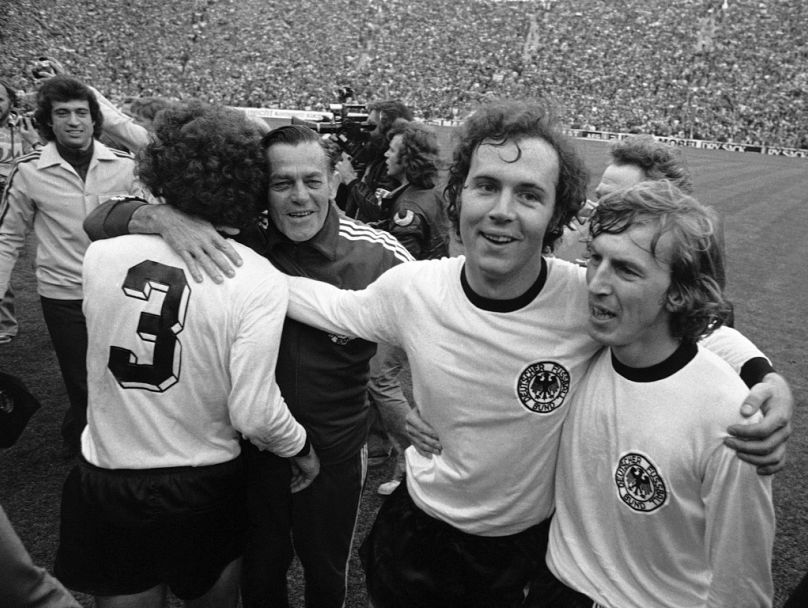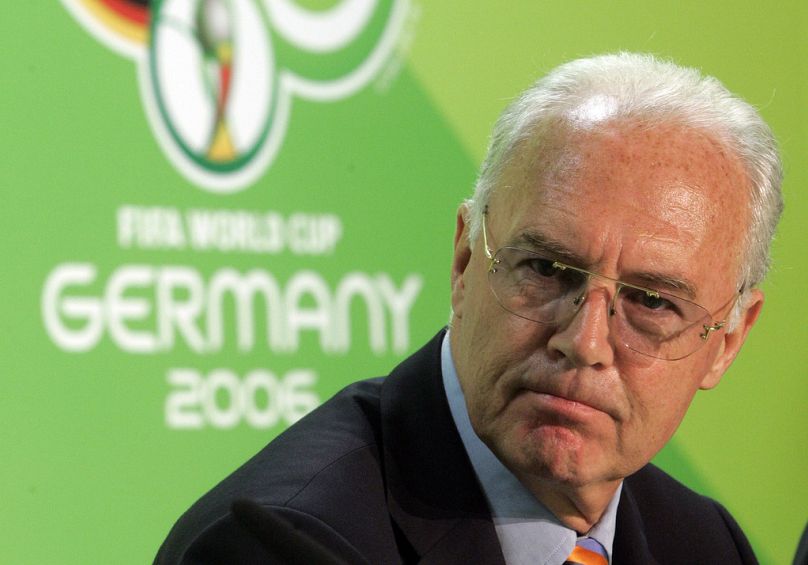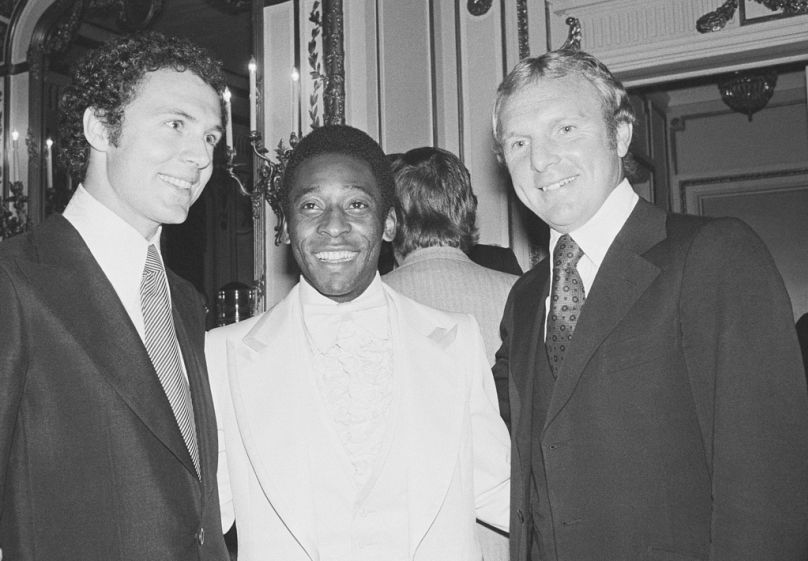As a player, he reimagined the defender’s role in soccer and captained West Germany to the World Cup title in 1974. Darker moments came later.
Franz Beckenbauer, who won the World Cup both as player and coach and became one of Germany’s most beloved personalities with his easygoing charm, has died. He was 78.
Beckenbauer's death was first announced through a statement from his family to German news agency dpa and then confirmed by the German football federation.
“It is with deep sadness that we announce that my husband and our father, Franz Beckenbauer, passed away peacefully in his sleep yesterday, Sunday, surrounded by his family,” the family said in its statement. “We ask that we be allowed to grieve in peace and be spared any questions.”
The statement did not provide a cause of death. The former Bayern Munich great, who became affectionately known as the “Kaiser” - or “Emperor” - had struggled with health problems in recent years.
Beckenbauer was one of German football's central figures. As a player, he reimagined the defender’s role and captained West Germany to the World Cup title in 1974 after it had lost to England in the 1966 final. He was the coach when West Germany won the tournament again in 1990, a symbolic moment for a country in the midst of reunification, months after the Berlin Wall fell.
“The ‘Kaiser’ was one of the best players our sport has ever seen,” German football federation president Bernd Neuendorf said. “With his lightness, his elegance and his vision, he set standards on the field. ... Franz Beckenbauer leaves a great legacy for the federation and soccer as a whole.”
German Chancellor Olaf Scholz wrote on social media that Beckenbauer “inspired generations of enthusiasm for German soccer. We will miss him."
Beckenbauer's death comes just two days after the announcement that Mario Zagallo, the Brazilian who became the first person to win the World Cup as a player and coach, had died at the age of 92. The only other person to achieve that feat is France's Didier Deschamps.
World Cup bribe accusations
Beckenbauer was also instrumental in bringing the highly successful 2006 World Cup to Germany, though his legacy was later tainted by charges that he only succeeded in winning the hosting rights with the help of bribery. He denied the allegations.
“We did not want to bribe anyone and we didn’t bribe anyone,” Beckenbauer, who headed the World Cup organizing committee, wrote in his last column for daily tabloid Bild in 2016.
Beckenbauer and three other members of the committee were formally made criminal suspects that year by Swiss prosecutors who suspected fraud in the true purpose of multi-million euro payments that connected the 2006 World Cup with FIFA. But he was eventually not indicted in 2019 for health reasons and the case ended without a judgment when the statute of limitations expired in 2020 amid delays to the court system caused by the coronavirus pandemic.
Beckenbauer was in 2014 briefly suspended by FIFA’s ethics committee from all football-related activity for failing to cooperate with prosecutor Michael Garcia’s probe of alleged corruption in the 2018 and 2022 World Cup votes. The suspension was lifted during the 2014 World Cup in Brazil when he agreed to cooperate.
'He did everything that a German is not supposed to do'
The allegations damaged Beckenbauer’s standing in public perception for the first time. Until then, Beckenbauer had seemingly been unable to say or do anything wrong. Germans simply loved him.
“He did everything that a German is not supposed to do,” former Bayern Munich teammate Paul Breitner once said of the man popularly known as “Der Kaiser.”
“He got divorced, he left his children, took off with his girlfriend, got into trouble with tax collectors, left his girlfriend again."
“But he is forgiven for everything because he’s got a good heart, he’s a positive person and he’s always ready to help. He doesn’t conceal his weaknesses, doesn’t sweep his mistakes under the carpet,” Breitner said.
Born for glory
The son of a post official from the working-class Munich district of Giesing, Beckenbauer became one of the greatest players to grace the game in a career that also included stints in the United States with the New York Cosmos in the late 1970s and early 1980s.
Born on 11 September, 1945, months after Germany’s surrender in World War II, Beckenbauer studied to become an insurance salesman but he signed his first professional contract with Bayern when he was 18.
“You are not born to become a world star in Giesing. Football for me was a deliverance. Looking back, I can say: Everything went according to how I’d imagined my life. I had a perfect life,” Beckenbauer told the Sueddeutsche newspaper magazine in 2010.
Beckenbauer personalized the position of “libero,” the free-roaming nominal defender who often moved forward to threaten the opponent’s goal, a role now virtually disappeared from modern football and rarely seen before his days.
An elegant, cool player with vision, Beckenbauer defined as captain the Bayern Munich side that won three successive European Cup titles from 1974 to 1976.
In his first World Cup as player in 1966, West Germany lost the final to host England as Beckenbauer chased Bobby Charlton around the field having been given the task of marking the England standout.
Four years later, with his arm strapped to his body because of a shoulder injury, Germany lost a memorable semifinal to Italy.
Finally, in 1974 at home, Beckenbauer captained West Germany to the title.



